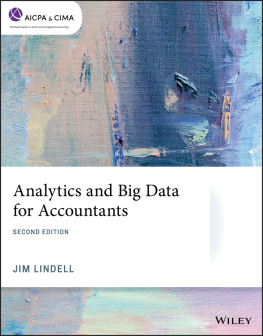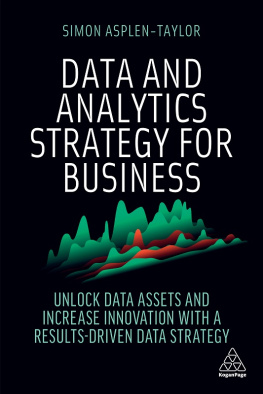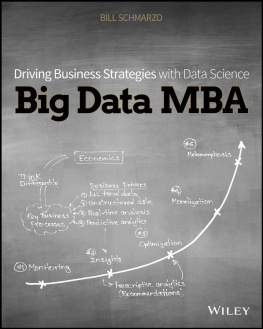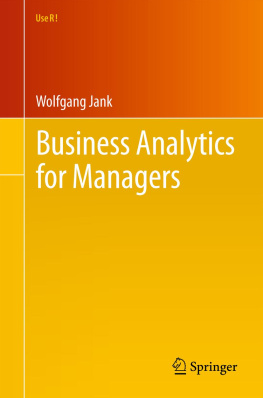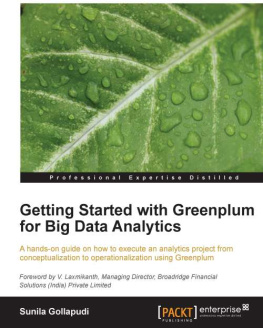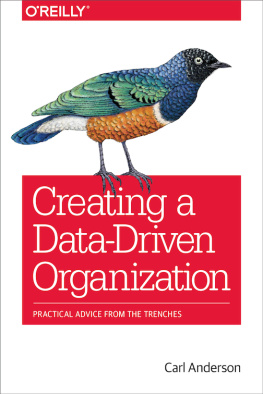Becoming Data Literate
Building a great business, culture and leadership through data and analytics
David Reed
Foreword by Adrian Gregory, Co-founder and CEO, DataIQ

Contents
Foreword
I would be lying if I said I was passionate about data. My passion is business, specifically helping people in business who drive performance, especially when they use data to achieve success. I love what data can achieve when used in telligently.
Successful businesses create. They create opportunities, wealth, jobs and careers, relationships, solutions to problems and, most of all as a combined economic force, businesses create growth a nd progress.
To prosper today demands being data-driven. As Silicon Valley has shown with the success of Amazon, Apple, Facebook and Google, this is how prominent market positions and remarkable valuations are created.
But established firms are fighting back. In 2021, for the third consecutive year, 99% of firms in the Fortune 1000 are investing in data and artificial intelligence (AI) according to research by New Vantage Partners published in the Harvard Busi ness Review .
However, while these data capabilities continue to accelerate, very few are delivering the anticipated results, the Harvard Business Review reported in February 2021. This is very much in line with our own research findings and experiences with the global, FTSE 100, large-and mid-market organisations that make up the DataI Q community.
Why is this? You will find many of the reasons called out in this book, but a major issue that needs to be addressed is legacy culture, especially a lack of focus on people and their soft skills, including the ability to communicate key data insights to non-data experts in senior management. It is this important step that leads towards developing successful data-driven businesses. Real-world examples from Aviva, GSK, Jaguar Land Rover and Zurich show how established firms are able to overcome these obstacles and pursue th eir visions.
DataIQ has taken the success factors we have seen time and again from companies like these and developed them into a framework for building a truly data-driven business we call it the DataIQ Way.
It starts with the fundamental importance of aligning the organisations broader vision and strategy with its data vision and strategy, and proceeds with building leadership, skills and culture focusing on people, not technology. To compete and prosper, businesses need to become truly data literate and speak the language of data throughout the business, hence the title of the book.
The DataIQ Way is heavily evidence-based, built on years of hands-on experience working with established global, FTSE 100, large- and mid-market enterprises, combined with extensive research, and in-depth interviews with over 600 industry leaders. Throughout, it is based on practical experience rather than textbo ok theories.
My own love for data started in the early 1980s. As a young, impressionable marketing consultant, I first got excited about what was then called direct marketing and the potential it offered to drive sales and business growth. I visited one of the leading marketing agencies at the time, Ogilvy Direct, and picked up in reception a bright red brochure which simply said on the front, Never sell to a stranger. I loved it!
The theme, of course, was all about collecting and analysing data on consumers and from this understanding, sending them relevant messages to win their confidence and convert them to customers. It became known as one-to-one marketing, then data or database marketing and, more recently, data-driven marketing we work in an industry built on buzz words!
Excited by the opportunities in data and with a passion for business, I set up the first of my five data-centric businesses in October 1988 and stayed with it right through its rapid growth in the second decade of this century. As often as this saw positive data usage and business growth, it also involved misuse and rogue operators. It was to combat this that I started DQM Group, out of which DataIQ launc hed in 2011.
I have known David Reed, this books author, since the late 1980s and saw in his journalism the same interest in data and maintaining standards as I felt. His communication skills have allowed us to attract, develop and engage with our ever-expanding community of data and analytics professionals. I would like to thank David for the considerable work involved in researching and writing this book on top of his day job, and even more for the ten years we have worked together at DataIQ helping our members and the broader DataI Q community.
And it is people data leaders and data practitioners that make the real difference. Their expertise in applying technology and techniques to raw data, combined with an ability to communicate findings effectively, that allows their organisations to harness the power of data, transform their businesses and create truly great data literate businesses.
A growing number of organisations are on this journey, many of them still at the early stages. We are confident that by focusing on the methods and framework detailed in this book, youll be able to fast-track your own progress to data-driven success and even become a gre at business.
Adrian Gregory
Co-founder and CEO
DataIQ
Introduction: Towards evidence-based decision-making
The substance of things hoped for. The evidence of things not seen.
Hebrews 11.1
I n 1999, the then Health Secretary in the UK government, Frank Dobson, wanted to understand the balance between cost and effectiveness of drugs prescribed by the National Health Service (NHS). Typically, decisions about prescribing were being made at a local, rather than national level, creating a culture of postcode prescribing with differences in the treatments available across the country.
Wanting a change in approach to make delivery consistent everywhere, he appointed Sir Andrew Dillon to be the first chief executive of the National Institute for Clinical Excellence (now NICE National Institute for Health and Care Excellence), who set about appraising widely prescribed drugs for their benefit to patients and costs to the NHS.
It was the birth of evidence-based decision-making in healthcare and a model for what the data industry is currently trying to achieve in the commercial realm. Instead of leaving each stakeholder to decide based on their own experience and intuition, end-to-end data on options through to outcomes is assembled, analysed and modelled to reveal patterns and insights. These can then be used to support decision-making and, in the process, often transform the choices th at are made.
As NICE discovered early on, data-driven decision-making can be controversial. Its first ever recommendation was that the NHS should stop prescribing Relenza, an antiviral treatment for flu, because it did little to reduce the impact of the illness on high-risk groups, such as the elderly and asthmatic. Mike Thompson, chief executive of the Association of the British Pharmaceutical Industry, commented on this decision: That was the day that the world changed forever for the pharmaceutical industry and I think compan ies got it.
Data leaders may feel that they stand on the brink of their own world-changing moment as they build out their data offices and seek to build levels of data literacy across the organisation. In view is a transformation of the strategies, decisions, processes and value that can be realised. But there are many obstacles to overcome, from political resistance and entrenched cultures through to data silos and technology debt. To a leadership that was appointed for its technical abilities and with the tailwind of advocacy for data created by terms such as the Fourth Industrial Revolution, for example these can seem insurmountable and outside of personal competence a nd skillset.






